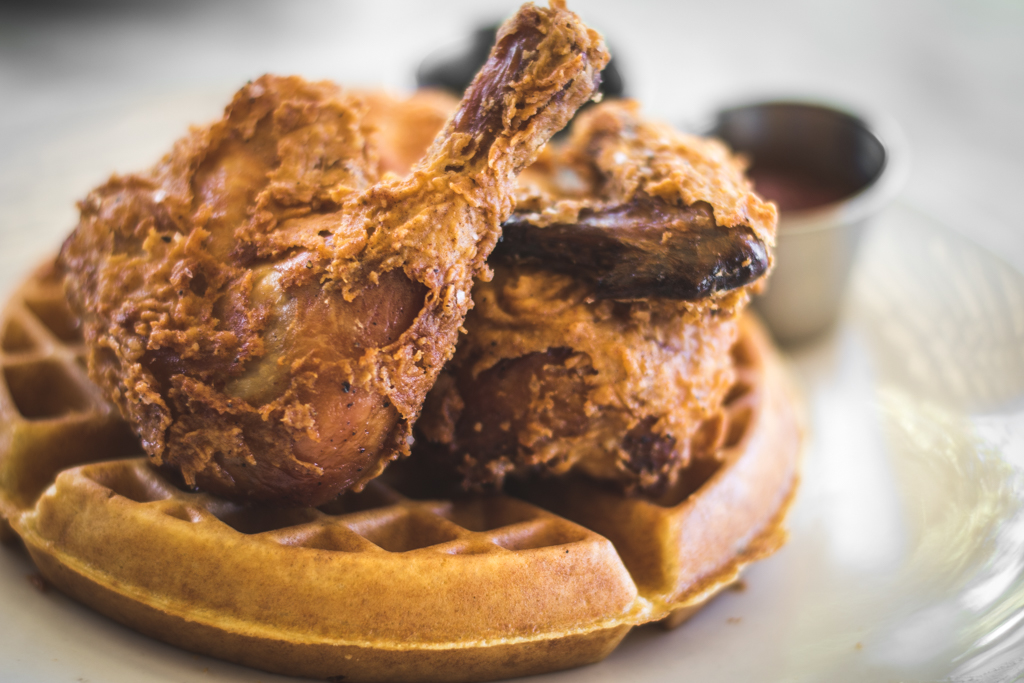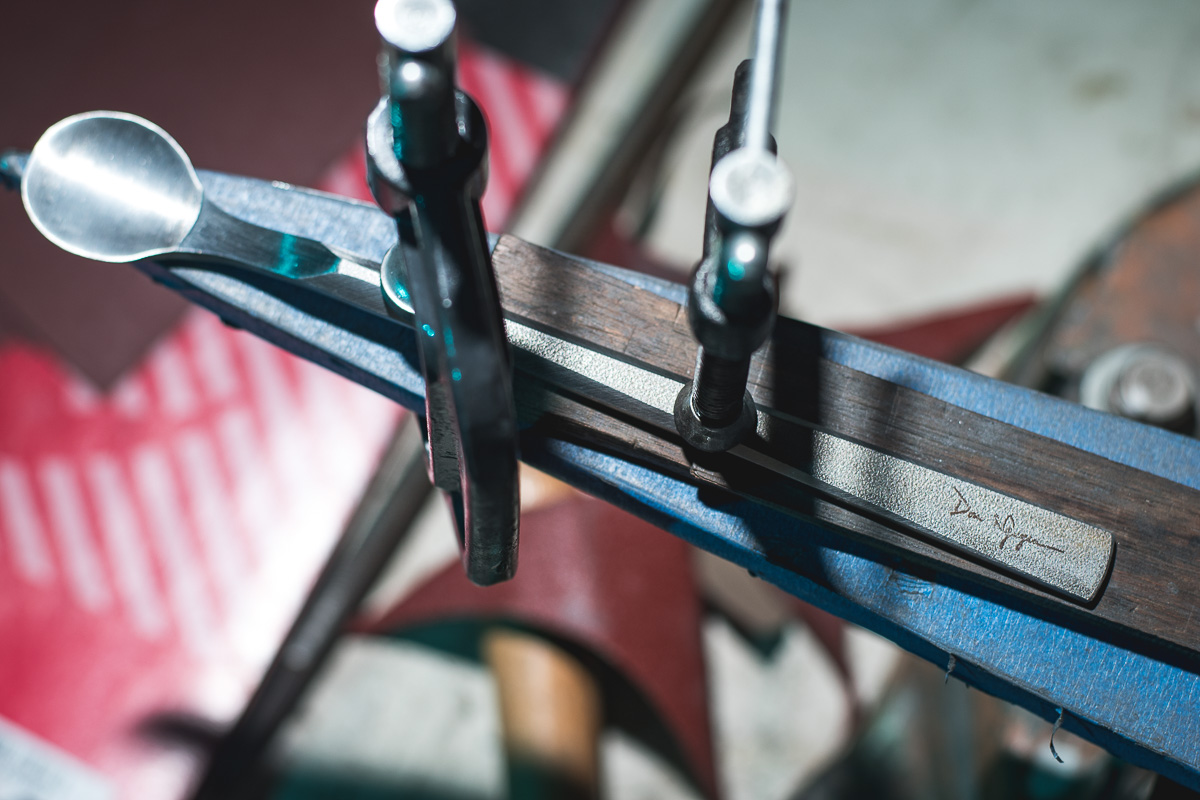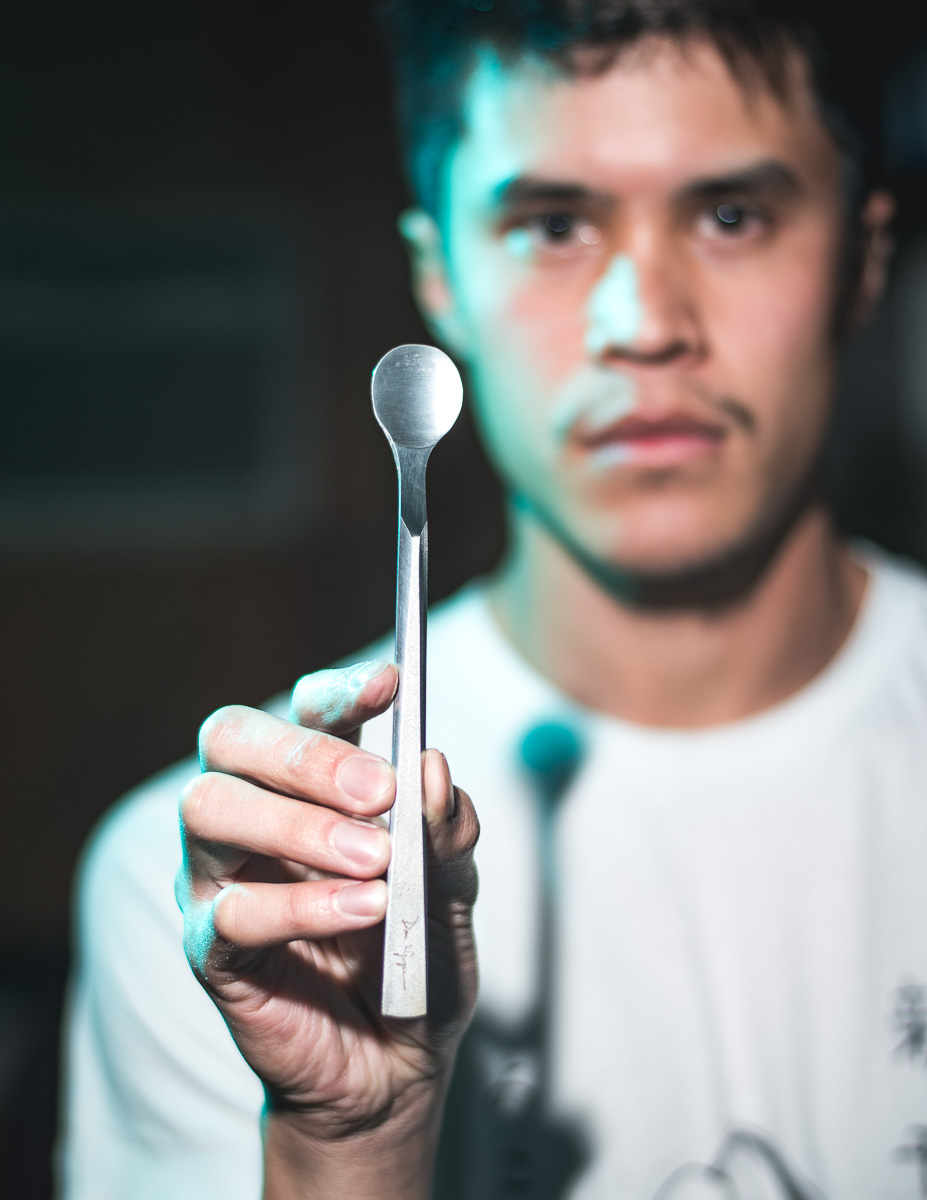

A well-crafted spoon is a thing of beauty.
The materials, weight, balance, size, and comfort are only some of the factors important when searching for your ideal scooping companion. And gourmet spoons are a whole other beast.
Tucson-based spoonmaker Don Nguyen originally wanted to design supercars. However, he had a painful experience at a friend’s house trying to eat a bowl of Frosted Flakes. He tried to use his own Chinese soup spoon, but it wasn’t nearly scoopy enough.
After obsessing over scooping, he started to make his own spoons.
Nguyen juggled his love for both fast cars and scoopy spoons. During college, he was the fabrication director for Wildcat Formula Racing, a student-driven design, build, and compete club that constructs a formula-style race car every year.
The handles on Don Nguyen Spoons feature modern design and sharp angles reminiscent of fast cars, bringing a young spirit to an ancient craft that draws romanticized visions of old bladesmiths hammering away on Damascus spoons.
Don’t mistake the sharp angles as a gimmicky aesthetic — the handles are still comfortable with a well-balanced spoon.

Nguyen shared his work with other gourmet spoon enthusiasts on Gourmet Spoon Forums, then word of mouth spread with websites such as Reddit. Nowadays, his reputation is growing through his Instagram account.
Even though Nguyen earned his bachelor’s degree in material sciences and engineering in May 2016 from the University of Arizona, he still committed to crafting spoons (both pure metal and those with a wooden handle component) full time.
Spoons range from roughly $300 for a smaller teaspoon to around $800 for a Gray Kunz-style spoon. Ambitious custom projects can reach the $1,800 mark.
Though the spoon-making process is lengthy and expensive, Nguyen’s following of spoon enthusiasts across the country allows him to maintain his craft.
“Most of the people who buy my spoons aren’t even from Tucson,” Nguyen said. “I can’t even afford my own spoons.”

Nguyen’s spoon-making process can be condensed into five steps. It starts with a rough shaping of the spoon, followed by a heat treat. Next, finishing touches are added to the shape to get the geometry just right, then the handle is created. The final step is the sharpening process.
Each step requires a deep knowledge of topics such as metallurgy and wood-working. In addition, Nguyen often uses high carbon steels and woods such as curly koa, dyed maple, and redwood.

“Once you’re used to my spoons, eating cereal with other spoons will feel so forky,” Nguyen said. “Although a wide profile, thin-pronged fork is the best way to eat ringed cereals such as Honey Nut Cheerios.”
The above article was written as satire for April Fools’ Day. The original nonfictional article is here. For more information, visit donnguyenknives.com.
Jackie Tran is a Tucson-based food writer, photographer, culinary educator, and owner-chef of the food truck Tran’s Fats. Although he is best known locally for his work for Tucson Foodie, his work has also appeared in publications such as Bon...